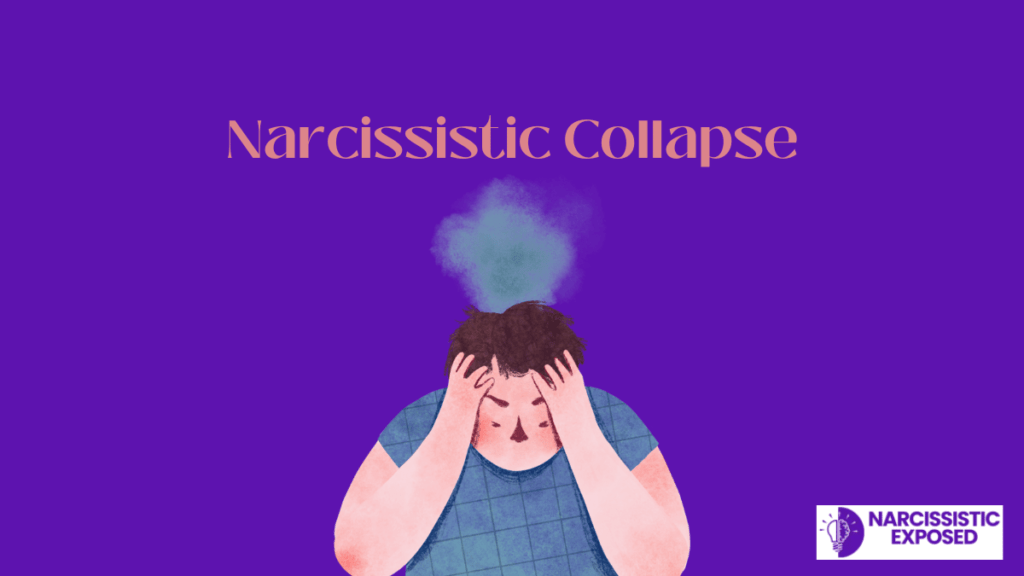
Narcissism, particularly when it pertains to Narcissistic Personality Disorder (NPD), is not a choice but rather a complex result of genetic, psychological, and environmental factors. Individuals do not choose to have narcissistic traits any more than they would choose other personality traits or disorders.
Narcissism is characterized by grandiosity, a need for admiration, and a lack of empathy. These traits can manifest in behaviors like exploiting others, exhibiting arrogance, and displaying an exaggerated sense of self-importance. While some aspects of narcissism, like self-confidence or self-promotion, can be adaptive or chosen in certain situations, the pervasive and enduring patterns seen in NPD are ingrained and not consciously selected. Understanding narcissism’s roots and expressions is crucial in distinguishing between the disorder and the occasional narcissistic behavior exhibited by many individuals.
The Nature of Narcissism
Defining Narcissism and Narcissistic Personality Disorder (NPD)
Narcissism refers to a range of self-centered attitudes and behaviors characterized by an inflated sense of self-importance, a deep need for excessive attention and admiration, and a lack of empathy for others. Narcissistic Personality Disorder (NPD) is a more severe and persistent condition diagnosed when these traits become rigid and pervasive and lead to significant impairment or distress. NPD involves a pattern of grandiosity, fantasy, entitlement, and exploitativeness, with the individual often displaying arrogant or haughty behaviors.
Biological, Psychological, and Environmental Factors
The development of narcissistic traits, particularly in the form of NPD, is influenced by a complex interplay of biological, psychological, and environmental factors:
- Biological Factors: Genetic predispositions can play a role, with research suggesting a heritable component to narcissistic traits and behaviors.
- Psychological Factors: Early childhood experiences, such as excessive pampering or, conversely, harsh criticism, can contribute to the formation of narcissistic behaviors. Personality development, self-esteem issues, and defense mechanisms also play a significant role.
- Environmental Factors: Cultural and social influences, including parental behavior, societal values, and media exposure, can impact the expression of narcissistic traits. For example, environments that excessively value individual achievement and appearance may reinforce narcissistic tendencies.
These factors collectively contribute to the development and manifestation of narcissistic traits, indicating that narcissism is not a simple choice but rather a result of multiple intertwined influences.
Choice vs. Condition
The Debate on Volition and Psychological Disorders
The question of whether psychological disorders, including narcissism, are a matter of choice or condition is a complex and debated topic in psychology. Volition, or the act of making a conscious choice, is often distinguishable from the involuntary nature of mental health conditions. Psychological disorders like Narcissistic Personality Disorder (NPD) are recognized as conditions that individuals do not choose. These disorders are diagnosed based on specific criteria that include persistent patterns of behavior and thought, typically beyond the individual’s voluntary control.
Narcissism as a Spectrum of Behaviors
Narcissism can be viewed on a spectrum, ranging from standard personality traits to the pathological extremes seen in NPD. While everyone may exhibit narcissistic behavior at times, these actions do not necessarily indicate a personality disorder. The spectrum perspective helps differentiate between occasional narcissistic choices, such as seeking attention or admiration in specific situations, and the more ingrained, pervasive patterns of behavior characteristic of NPD.
Understanding narcissism as a spectrum emphasizes that while certain narcissistic behaviors might be chosen in specific contexts, the compulsive nature of these behaviors in someone with NPD is not a matter of choice but a manifestation of the disorder. This distinction is crucial in the discourse on volition in psychological conditions, illustrating that the pathological end of the narcissism spectrum represents a condition far removed from the deliberate choices made by individuals without the disorder.
Developmental and Environmental Influences
How Upbringing and Social Factors Contribute to Narcissistic Traits
Developmental and environmental factors significantly influence the formation of narcissistic traits. Early childhood experiences, such as parenting style, family dynamics, and social interactions, play a crucial role. For instance, children who receive excessive praise for their talents or appearance may develop an inflated sense of self-importance. At the same time, those who experience neglect or unrealistic expectations may use narcissism as a defense mechanism.
Social factors, including cultural values that emphasize individual success and external appearance, can also reinforce narcissistic behaviors. Exposure to certain media portrayals, societal admiration for charismatic but self-centered individuals, and competitive environments can encourage narcissistic tendencies.
The Role of Choice in Behavioral Manifestation
While environmental and developmental influences shape the potential for narcissistic traits, the role of choice in the manifestation of these traits can vary. As individuals mature, they may have the capacity to reflect on their behaviors and attitudes and choose how to respond to their narcissistic inclinations. However, for those with NPD, changing ingrained patterns of behavior requires more than just the will to choose differently; it often necessitates therapeutic intervention.
The extent to which individuals can choose their responses or change their narcissistic behaviors depends on the severity of the traits and their awareness and willingness to seek change. In cases of full-blown NPD, the entrenched nature of the disorder means that behaviors are less about conscious choice and more about psychological compulsion, necessitating professional treatment to achieve meaningful change.
The Impact of Narcissism
Effects on the Individual and Relationships
Narcissism, particularly when it reaches the level of a personality disorder, can have profound effects on both the individual and their interpersonal relationships. For the individual, narcissism can lead to fragile self-esteem that is heavily dependent on external validation. This fragility often results in emotional volatility, with individuals experiencing severe mood swings based on perceived criticism or slights.
In relationships, narcissism can cause significant distress and dysfunction. Narcissistic individuals often struggle with empathy, making it difficult for them to recognize or respond to the emotional needs of others. This lack of empathy, combined with a tendency to manipulate or exploit others to meet their own needs, can lead to damaged relationships, including issues with trust, communication, and intimacy.
Responsibility and Awareness in Narcissistic Behaviors
While narcissistic behaviors can stem from deeply ingrained personality traits and psychological conditions, there is a degree of responsibility that individuals can take, especially when it comes to awareness and seeking change. Recognizing narcissistic tendencies is the first step in addressing and modifying these behaviors.
For those with narcissistic traits, developing awareness of how their actions affect others can be a crucial aspect of personal growth and relationship improvement. This awareness, often facilitated by psychotherapy or counseling, can lead to more conscious choices in behavior, fostering healthier interactions and reducing the negative impact of narcissism on themselves and others.
However, the capacity to take responsibility and enact change varies, particularly for those with severe NPD, where change requires comprehensive psychological intervention. In these cases, responsibility also extends to seeking and participating in professional treatment to address the underlying issues contributing to narcissistic behaviors.
Navigating Narcissism
Strategies for Managing Narcissistic Traits
Managing narcissistic traits involves both self-directed strategies and external support. Here are some approaches for individuals who recognize narcissistic tendencies in themselves or deal with narcissistic individuals:
- Self-Reflection and Mindfulness: Regular self-reflection can help individuals understand and monitor their narcissistic behaviors. Mindfulness and meditation can increase self-awareness and control over impulsive reactions.
- Setting Realistic Goals: Individuals should aim for achievable goals focusing on process and personal growth rather than external validation or success.
- Improving Empathy: Actively working on empathy, such as trying to understand and share the feelings of others, can mitigate narcissistic tendencies and improve interpersonal relationships.
- Seeking Feedback: Openness to constructive criticism can help individuals recognize and address narcissistic behaviors, although this may require building resilience to negative emotions associated with feedback.
Therapeutic Approaches and Personal Growth
Professional help is often necessary, especially for those with pronounced narcissistic characteristics or diagnosed NPD. Therapeutic approaches include:
- Cognitive Behavioral Therapy (CBT): Helps individuals recognize and change harmful thought and behavior patterns.
- Psychodynamic Therapy: Explores underlying unconscious forces, past experiences, and emotional patterns contributing to narcissistic behaviors.
- Group Therapy: Provides a platform for learning and practicing interpersonal skills, empathy, and self-awareness in a controlled, supportive environment.
For personal growth, individuals are encouraged to:
- Engage in Long-Term Psychotherapy: Consistent therapy can offer ongoing support, insight, and guidance for those with narcissistic traits.
- Develop Healthier Relationships: Building and maintaining relationships based on mutual respect, empathy, and understanding can foster personal growth and reduce narcissistic behaviors.
- Cultivate Self-Compassion: Learning to be kind and forgiving to oneself can decrease the need for external validation and reduce narcissistic tendencies.
Navigating narcissism, particularly for those on the higher end of the narcissistic spectrum, requires a multifaceted approach that includes self-management strategies, therapeutic interventions, and a commitment to ongoing personal development.
Conclusion
Recap of the Complexity of Narcissism as a Choice or Condition
The exploration of whether narcissism is a choice or condition reveals the complexity of this personality trait and its more pathological form, Narcissistic Personality Disorder (NPD). Narcissism is not simply a choice; it’s a multifaceted condition shaped by genetic, psychological, and environmental factors. While certain narcissistic behaviors can be moderated through personal decisions and efforts, the ingrained patterns of thinking and behaving seen in NPD require comprehensive and professional intervention.
Understanding and Compassionate Intervention
Understanding narcissism’s nuanced nature is essential for addressing its challenges effectively. It calls for a compassionate approach, recognizing the individual’s struggles and the impact of their behavior on themselves and others. Encouraging individuals to seek help and offering support to those affected by narcissistic behaviors can foster healing and growth. Compassionate intervention can lead to more positive outcomes for everyone involved, whether through therapy, support groups, or education.
In conclusion, while narcissism may have elements influenced by choice, its roots run deep into the psyche’s complex fabric, necessitating a blend of understanding, intervention, and support to navigate its challenging waters effectively.




